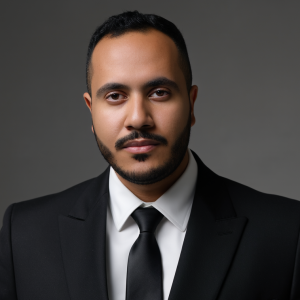Michael Ellis DeBakey (September 7, 1908 – July 11, 2008) was an American cardiovascular surgeon, medical educator, and innovator whose groundbreaking work transformed the field of medicine. Over a career spanning nearly eight decades, DeBakey pioneered surgical techniques that have saved countless lives, advanced medical education, and redefined the treatment of cardiovascular diseases. His contributions laid the foundation for modern heart surgery, organ transplantation, and biomedical innovation.
Michael Ellis DeBakey :Early Life and Education
Born in Lake Charles, Louisiana, to Lebanese immigrants, DeBakey was raised in a household that valued education and hard work. His father, a pharmacist, introduced him to the medical field at an early age, while his mother’s sewing skills inspired his meticulous attention to detail, which later proved instrumental in his surgical innovations.
DeBakey attended Tulane University in New Orleans, where he earned both his undergraduate and medical degrees. Even as a medical student, he displayed an extraordinary aptitude for innovation. In 1932, he invented the roller pump, a crucial component of the heart-lung machine. This device enabled open-heart surgery by maintaining blood circulation during procedures, a breakthrough that would later become instrumental in saving millions of lives.

World War II and Medical Advancements
During World War II, DeBakey served in the U.S. Army Surgeon General’s office, where he played a key role in developing Mobile Army Surgical Hospitals (MASH units). These units allowed surgeons to operate closer to the battlefield, dramatically reducing mortality rates.
His wartime experiences also influenced his advocacy for specialized medical centers for veterans. His recommendations contributed to the establishment of the Veterans Administration hospital system, ensuring that returning soldiers received high-quality medical care. This foresight helped reshape military medicine and set a precedent for trauma care worldwide.

Pioneering Innovations in Cardiovascular Surgery
After the war, DeBakey joined Baylor College of Medicine in Houston, Texas, where he transformed the institution into a leading center for cardiovascular surgery and research. His pioneering surgical techniques revolutionized the treatment of cardiovascular diseases.
Arterial Grafting
In the 1950s, DeBakey developed techniques for replacing diseased blood vessels with synthetic Dacron grafts, a material he personally sewed. Before this innovation, patients with aneurysms or arterial blockages had limited treatment options. His work provided a long-lasting solution and significantly improved survival rates.
Coronary Artery Bypass Surgery
DeBakey was instrumental in developing coronary artery bypass grafting (CABG), a procedure that remains one of the most common heart surgeries today. By rerouting blood flow around blocked arteries, CABG provides relief for patients with severe coronary artery disease, preventing heart attacks and extending lives.
Artificial Heart Devices
A visionary in biomedical engineering, DeBakey collaborated with engineers to create ventricular assist devices (VADs), which help patients with heart failure. The DeBakey VAD, a miniature heart pump, was a pioneering innovation that provided mechanical support to patients awaiting heart transplants. His early work in artificial heart technology paved the way for modern advancements in mechanical circulatory support.
Contributions to Medical Education and Leadership
Beyond his surgical innovations, DeBakey was a dedicated educator who mentored generations of surgeons and medical professionals. As president and later chancellor of Baylor College of Medicine, he emphasized the integration of research, education, and clinical care. His leadership transformed Baylor into one of the world’s premier medical institutions.
DeBakey also played a crucial role in the establishment of the National Library of Medicine, which serves as the world’s largest repository of medical knowledge. His advocacy for medical research funding helped secure resources that advanced medical science and technology.
Honors and Recognition
Throughout his career, DeBakey received numerous accolades for his contributions to medicine. In 1969, he was awarded the Presidential Medal of Freedom, the highest civilian honor in the United States. In 1987, he received the National Medal of Science for his contributions to biomedical engineering and surgery.
In 2008, just months before his passing, DeBakey was awarded the Congressional Gold Medal, one of the most prestigious civilian honors. This recognition cemented his legacy as one of the most influential medical figures of the 20th century.
DeBakey’s Enduring Legacy
Michael DeBakey’s contributions extend far beyond the operating room. His surgical techniques, medical devices, and educational initiatives continue to impact millions of lives worldwide. His vision for patient care, medical research, and education has left an indelible mark on the medical community.
DeBakey passed away on July 11, 2008, at the age of 99, but his legacy endures through the countless lives saved by his innovations. His pioneering spirit continues to inspire the next generation of medical professionals, ensuring that his contributions to humanity will never be forgotten.
Conclusion
Michael Ellis DeBakey was not just a surgeon; he was a medical visionary whose groundbreaking work revolutionized cardiovascular surgery and medical education. His relentless pursuit of excellence, innovative thinking, and unwavering commitment to patient care have set a standard that continues to shape modern medicine. Whether through his life-saving procedures, pioneering inventions, or transformative educational leadership, DeBakey’s impact on the world of medicine remains unparalleled.
Do follow him on Instagram for more Updates











